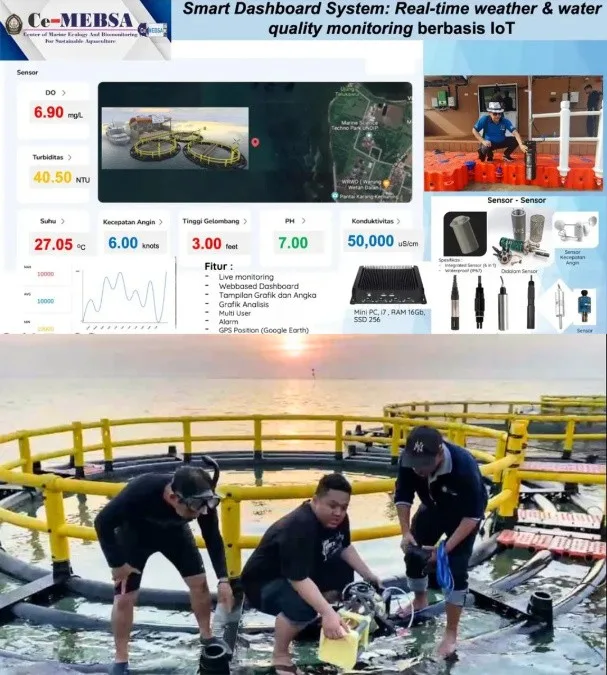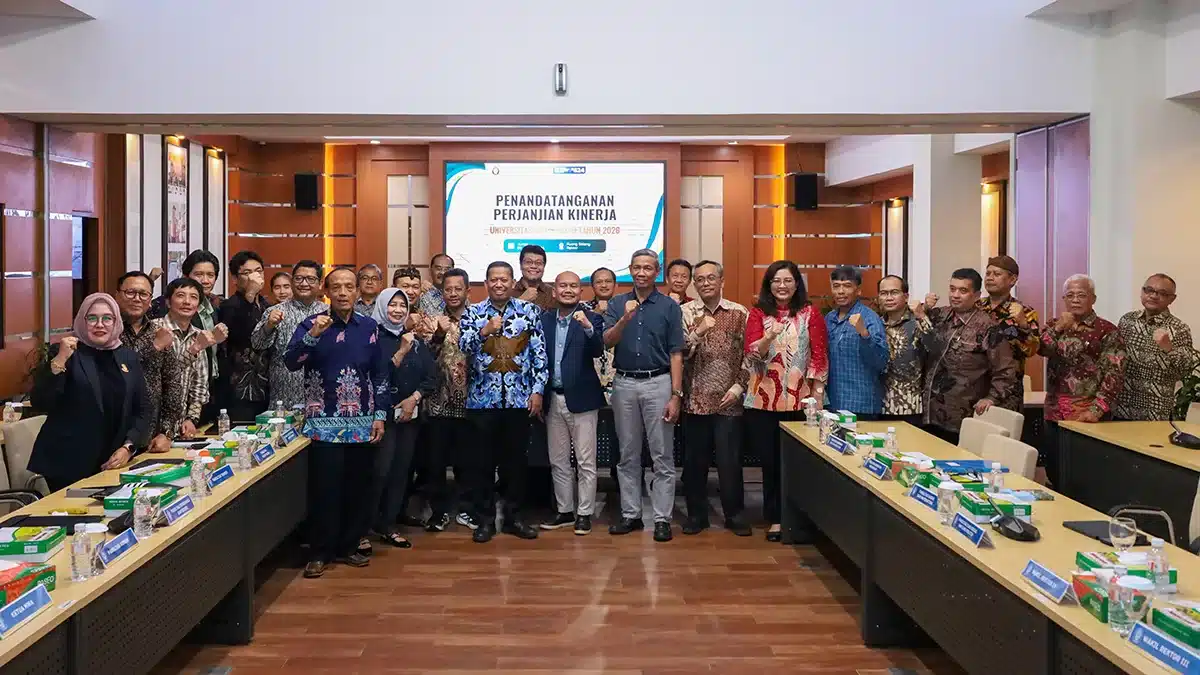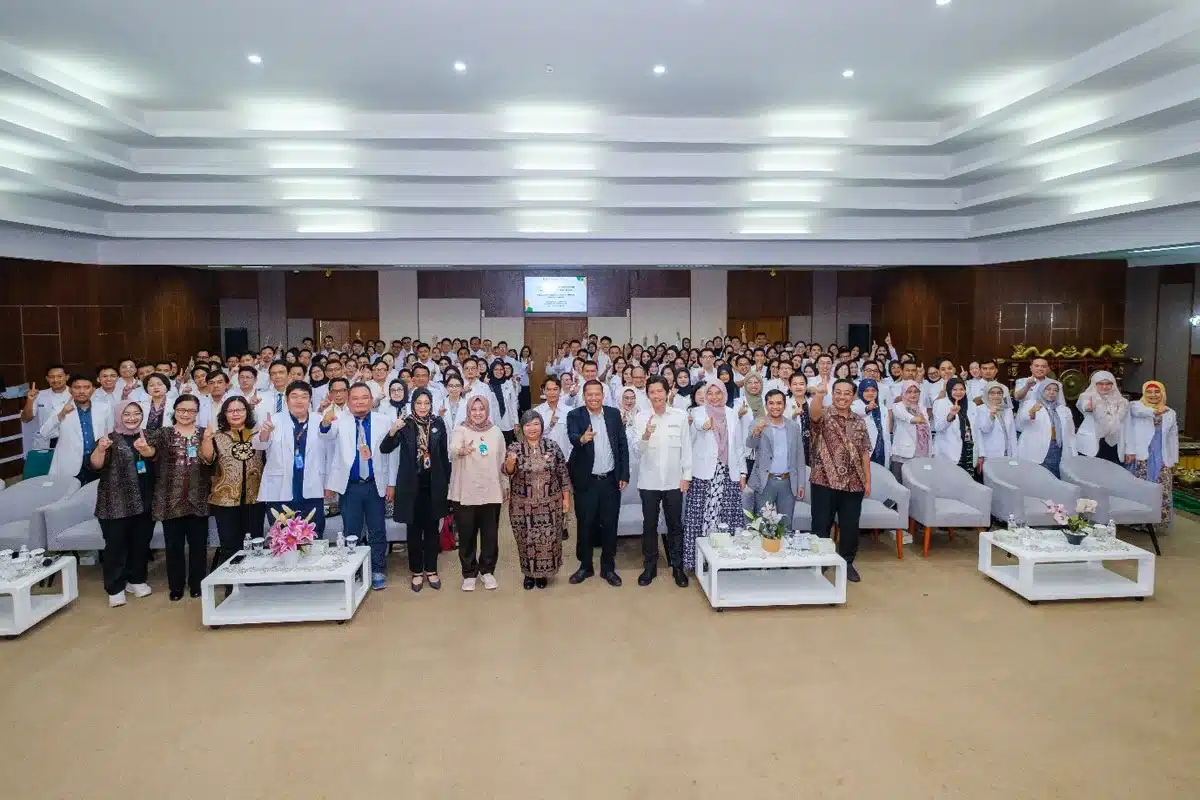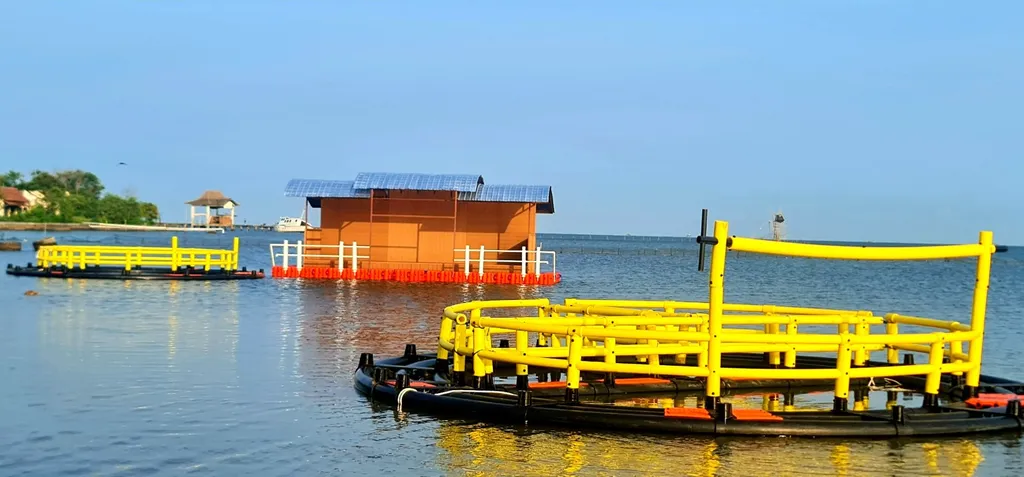UNDIP, Semarang (September 29, 2025) – The sea has always been a source of valuable lessons. From every wave and current emerges new ideas on how humans can coexist with nature. With that awareness, Universitas Diponegoro (UNDIP) remains committed to producing research that excels academically while delivering tangible benefits for society and industry. One such effort is an innovation in modern fisheries embracing the blue economy concept.
Through the Center of Marine Ecology and Biomonitoring for Sustainable Aquaculture (Ce-MEBSA), UNDIP integrates robotics, the Internet of Things (IoT), and smart dashboard systems to create aquaculture practices that are both productive and environmentally friendly.
This cross-disciplinary collaboration is led by Prof. Drs. Sapto Purnomo Putro, M.Si., Ph.D., from the Department of Biology, Faculty of Science and Mathematics, UNDIP, along with researchers Dr. Muhammad Helmi, S.Si., M.Si.; Erwin Adriono, S.T., M.T.; and Drs. Imam Kadarisman, M.Si. Together, they designed the Smart Robotic IMTA Cage, an advanced floating cage system with seven integrated smart robotic modules. These range from water quality sensors and security patrols to energy-efficient automatic feeding powered by renewable energy, all built with sustainability in mind.
The project has earned national recognition. The Smart Robotic IMTA Cage was named one of the 50 Most Prospective Innovations in Indonesia 2024, surpassing hundreds of other proposals. The technology is an advancement of the previously patented multi-tier floating net cage system, known as Integrated Multi-Trophic Aquaculture (IMTA).
UNDIP Rector Prof. Dr. Suharnomo, S.E., M.Si., affirmed that Ce-MEBSA’s research is concrete proof of UNDIP’s standing as a world-class research university. “Innovation must continue to downstreaming and commercialization. With support from industry and stakeholders, the outcomes of this research can truly be felt by society,” he said.
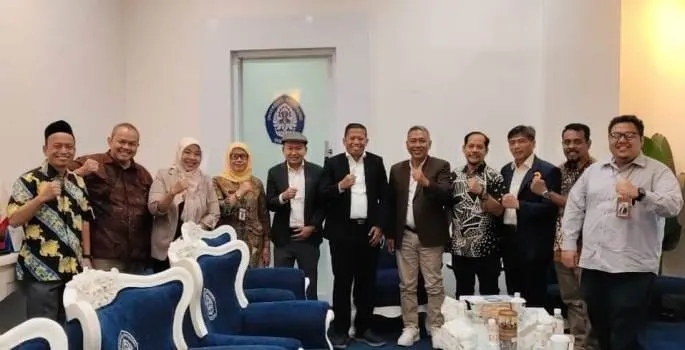
Prof. Sapto, Head of the Biology Department at UNDIP’s Faculty of Science and Mathematics and a marine biology expert, noted that the success of this innovation stems from synergy and collaboration. “Cross-disciplinary research, partnerships with industry, and support from local governments are key to realizing modern aquaculture that is both productive and sustainable,” he explained.
The innovation is further strengthened through collaboration with PT Rekayasa Agromarin Indonesia (RAI), the Jepara Fisheries Agency, and other government and private partners. According to Drs. Imam Kadarisman, M.Si., President Commissioner of PT RAI, this partnership with UNDIP opens up vast opportunities for advancing modern aquaculture that is ready for field application.
Beyond the smart cage, UNDIP researchers have also developed “Dokter Ikan,” an Artificial Intelligence-based application that enables fish farmers to analyze species and diagnose diseases by simply uploading photos. This innovation supports food security, improves fishers’ livelihoods, and reduces losses for aquaculture businesses.
Ce-MEBSA also launched a Smart Dashboard that integrates smart feeders, water quality sensors, and Remotely Operated Vehicles (ROVs) to monitor marine conditions in real-time. The system includes seven innovative modules: Smart Edu-Ecotourism, hybrid power generation, Smart Market, Smart Security, IoT-based water and weather sensors, Geoportal Coastal Environment, and the Integrated Smart Class—a floating classroom that enables students, researchers, and communities to learn directly from marine ecosystems.
Trials in the Thousand Islands, Karimunjawa, and Jepara yielded promising results, including improved fish growth, efficient feed utilization, more stable water quality, and even the repurposing of feed waste for shellfish and seaweed cultivation.
Through this approach, UNDIP not only produces advanced technologies but also opens new economic opportunities aligned with the principles of the blue economy—preserving marine ecosystems while improving coastal community welfare.
Aligned with Sustainable Development Goals (SDGs) 14 (Life Below Water) and 9 (Industry, Innovation, and Infrastructure), UNDIP demonstrates how research can bridge the gap between laboratories and communities. With the spirit of “Diktisaintek Berdampak,” UNDIP continues to assert its role as a university of Dignity and Benefit, delivering science-based solutions for the nation’s future. (Public Communication/ UNDIP/ DHW)
